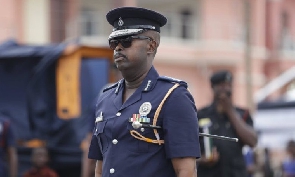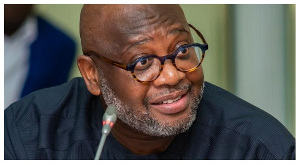Kenya is bracing for a surge in toxic political rhetoric in the coming months amid renewed agitation for a rotational presidency.
President Uhuru Kenyatta set the tone for the rotational presidency debate last week with remarks at a funeral suggesting he would prefer a person from an ethnic community other than any of the two that have produced the country’s past presidents to succeed him.
The president, who is serving his second and final constitutional term in office, is set to leave office in 2022.
His remarks on January 9 have particularly unsettled supporters of Deputy President William Ruto who see them as part of a scheme to block the DP from ascending to the top seat.
President Kenyatta and DP Ruto are Kikuyu and Kalenjin respectively, the two ethnic communities that have produced Kenya’s four presidents since its independence from the British in 1963.
Ethnicity is considered important in the country’s politics because the power elites tend to disproportionately distribute more national resources to their regions or hand more senior government appointments to people from their communities.
With support for even the strongest parties largely restricted to regions, coalitions or alliances involving two or more of the five biggest ethnic communities have dominated the country’s politics in the past 28 years since the reintroduction of multi-party democracy.
President Kenyatta’s predecessor Mwai Kibaki, also a Kikuyu, in 2013 unsuccessfully tried to break the Kikuyu-Kalenjin hegemony by expressing his preference, behind the scenes, for Musalia Mudavadi, a former vice-president, to succeed him.
Mr Mudavadi, whose Luhya ethnic community is the country’s second largest by population after the Kikuyu, has in the past said President Kenyatta reneged on a deal to endorse his candidature in that year’s election.
President Kenyatta instead entered and won the presidential race with DP Ruto as his running mate.
The duo won re-election on the same party ticket in 2017, but they have since fallen out over President Kenyatta’s surprise co-operation agreement with opposition rival former prime minister Raila Odinga.
The co-operation agreement, popularly known as the “Handshake”, followed a tense period between August 2017 and January 2018 during which the Supreme Court nullified the president's election victory, while a repeat presidential election was boycotted by the main opposition and Mr Odinga controversially swore himself in as “the people’s president”.
Although President Kenyatta has yet to name his preferred successor, his remarks about rotational presidency made at the funeral of Mr Mudavadi’s mother have sparked speculation that the former vice-president is among those who could make it to the shortlist alongside Mr Odinga.
The prospect of the president’s endorsement is already stirring some excitement at the Amani National Congress (ANC), the political party Mr Mudavadi leads, with its handful of members of parliament subsequently announcing they would lobby for the impeachment of DP Ruto.
Mr Odinga, whose ODM party has the most opposition MPs, has also publicly backed the calls for a rotational presidency. However, President Kenyatta’s endorsement does not guarantee anyone victory in the 2022 election, with his influence in his traditional political stronghold of Mt Kenya region appearing to wane and his friend-turned-foe DP Ruto increasingly making forays in the region.
Through his populist “Hustler Nation” movement, which seeks to exploit the wide social and economic inequalities in the Mt Kenya region, he has portrayed the 2022 election as a class battle between him and the dynasties — a reference to President Kenyatta and Mr Odinga whose fathers were post-independent Kenya’s first president and vice-president respectively.
A leaked letter by Senate Majority Whip Irungu Kang’ata, who represents one of the 10 counties in the vote-rich Mt Kenya, warned of considerable disaffection against the constitutional referendum being promoted by President Kenyatta.
The president’s apparent support for a rotational presidency may put him in even more trouble in a region that has produced three of Kenya’s four presidents.
Africa News of Monday, 25 January 2021
Source: theeastafrican.co.ke

















